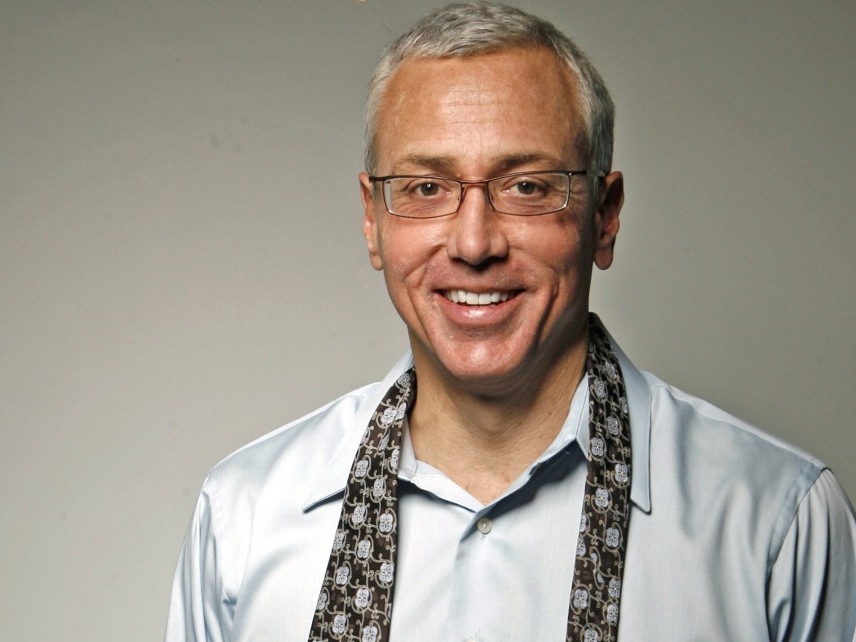
Dr. Drew Pinsky says his ex-“Loveline” partner Adam Carolla’s recent conservative streak doesn’t surprise him. The good doctor says it was there all along.
“I know him very well. It’s not a new attitude. It’s just clearer and louder,” Dr. Pinsky says of Carolla’s more politically charged routines heard on the popular podcast “The Adam Carolla Show.”
What is new is Carolla’s love for the podcast format, something the sharp-tongued comic has been selling his old partner on for a while now.
“Adam came to me last spring, bending my ear about the magic of podcasting,” Dr. Pinsky tells Big Hollywood. Carolla’s powers of persuasion took hold, resulting in the new “Adam and Drew Show” podcast. The pair worked together for 10 years on the syndicated radio show, and now their patented blend of blunt talk and medicinal healing is part of the podcast revolution, with new episodes released every Thursday and Sunday.
“I don’t remember a moment when we decided to do this, but it’s so freeing to be in a studio and just do whatever you want … no employers,” says Dr. Pinsky, who admits to veering more toward the political center thanks partly to Carolla’s influence. It’s quite a change from the feedback the pair would receive from their old “Loveline” bosses who demanded Carolla talk less, not more.
Dr. Pinsky will soon start a solo podcast on Carolla’s digital network in addition to “The Adam and Drew Show” as well as his other media gigs. For now, re-teaming with Carolla means virtually anything goes, content wise, mixed with throwback, “Loveline”-style callers.
“We’re just trying to find our way,” he says of the show’s first few episodes which have touched on how the Left tramples the First Amendment, unconventional ways of treating depression and journalistic malpractice.
Dr. Pinsky currently hosts radio’s “Loveline” sans Carolla, and his other media projects include a recent HIV special for MTV, the HLN nightly show “Dr. Drew on Call” and the VH1 series “Rehab with Dr. Drew.” He also maintains a private medical practice in California.
Podcasting gives the media-savvy doctor time to explore issues he thinks matter most, like the recent school shooting in Connecticut. He says the killings are a symptom of the massive disconnect experienced in our culture. That disconnect starts during childhood in many cases and grows “worse and worse,” he says.
“People are reluctant to take a good, hard look at that,” he says.
Dr. Pinsky got involved in media accidentally while in his 20s, addressing questions about GRID (gay-related immune deficiency), the disease which would later be known as AIDS. “Loveline” lets him share how childhood trauma can have a lingering, if not devastating, impact on adults. It’s an area where he sees real cultural progress, at least from a conversational viewpoint.
“I don’t feel the same resistance to that, ‘oh, that’s Freudian psychobabble,'” he says. “Now, there’s enough common discussion about this in the public.”
Dr. Pinsky wants to use podcasting to keep these kinds of open, lengthy dialogues alive, and he hopes the format’s cultural cache will help make that happen. He understands the irony of a fast-paced society embracing the notion of two men talking at great length, but his instincts tell him his former radio partner is on to something.
“There’s such a glaring hole for exactly this kind of delivery … to take our time and dig in and have a different relationship with the audience,” he says of the podcast format. “That’s the direction we’re gonna go.”

COMMENTS
Please let us know if you're having issues with commenting.